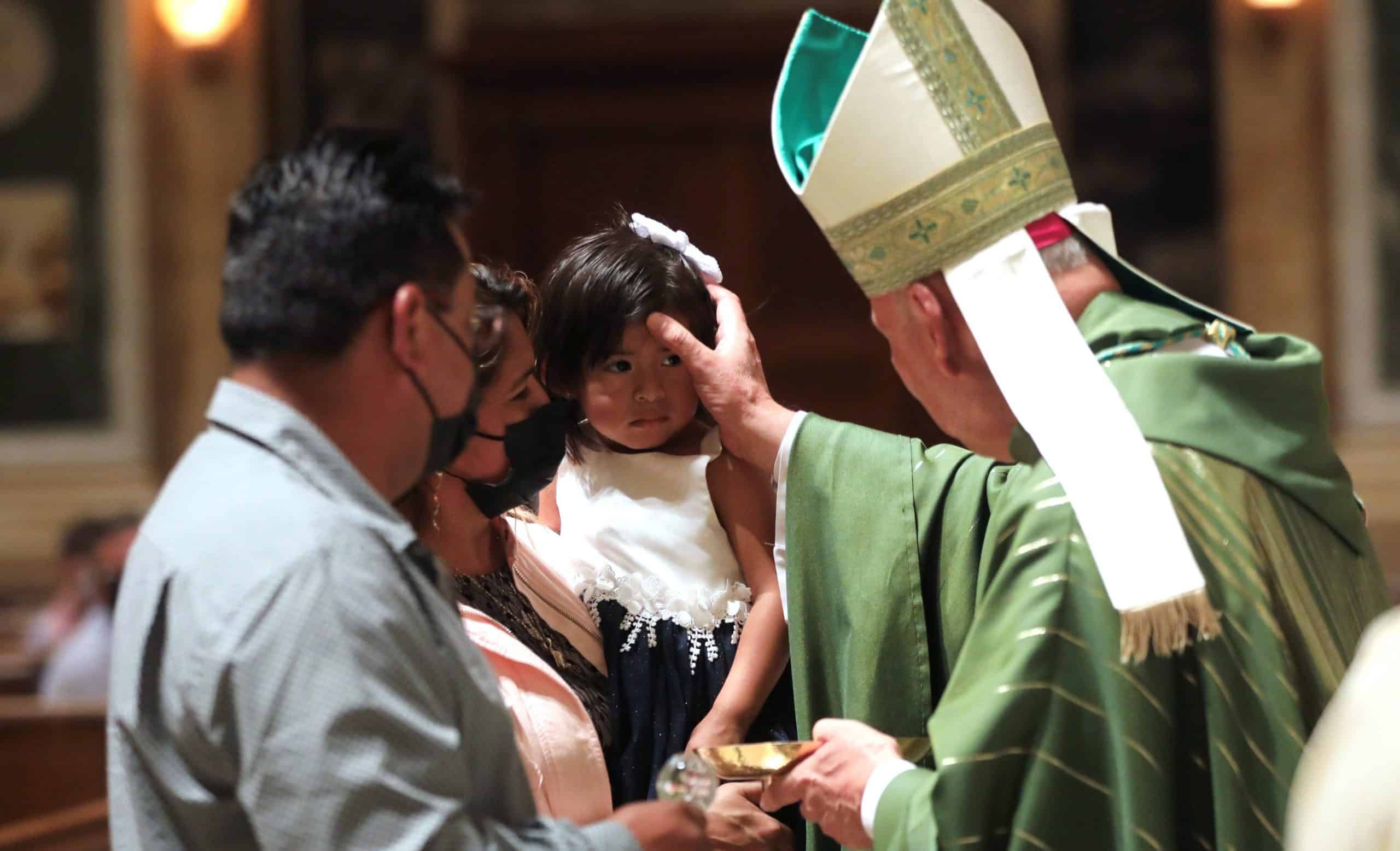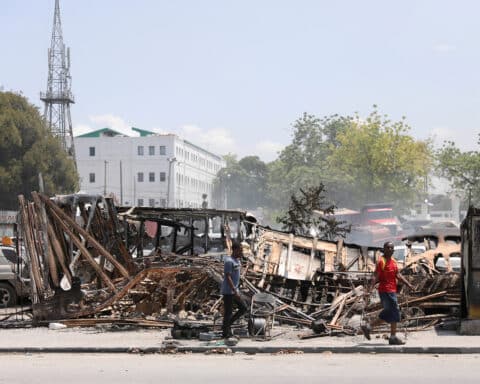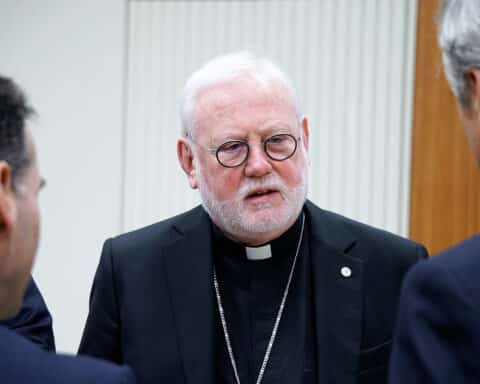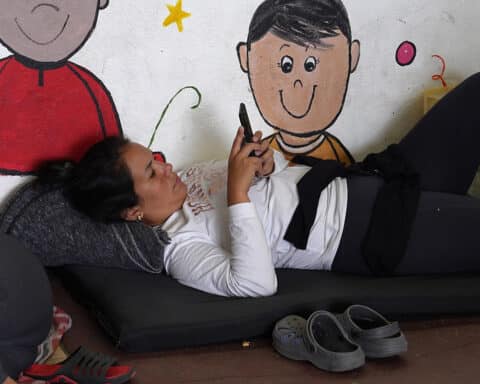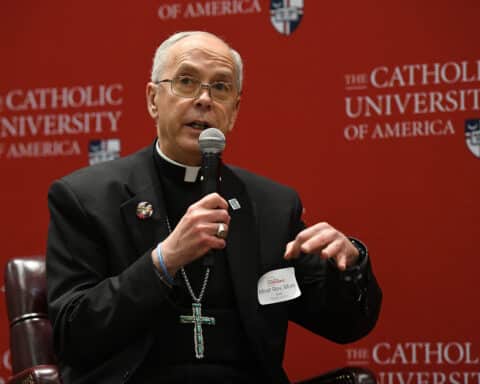Although the majority of Haitians encamped along the border in Del Rio, Texas, have been relocated, the issues facing migrants continue to exist. In “Toward an Ever Wider ‘We'” — Pope Francis’ message for the World Day of Migrants and Refugees, celebrated Sept. 26 — he reiterated his call for a Church that reaches out to those on the peripheries.
“Among those dwelling in those existential peripheries, we find many migrants and refugees, displaced persons and victims of trafficking, to whom the Lord wants his love to be manifested and his salvation preached,” he wrote.
In an interview with Our Sunday Visitor, Bishop Mario E. Dorsonville-Rodríguez, chairman of the U.S. Conference of Catholic Bishops’ Committee on Migration, who also serves as an auxiliary bishop of Washington, D.C., reflected on the current migration crises facing the United States. It has been edited for length and clarity.
Our Sunday Visitor: We recently celebrated the World Day of Migrants and Refugees, and Pope Francis used the message “Toward an Ever Wider ‘We’.” What does that mean for us in the context of the American Church?
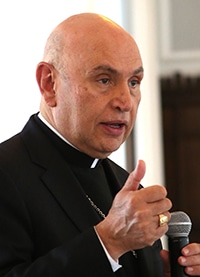
Bishop Mario E. Dorsonville: The “wider ‘we'” is the sense of not thinking about only myself, my family and those who exclusively love me, because the Gospel says, “If you love those who love you, what merit is this?” (Mt 5:46; Lk 6:32). The neighbor is very important because it’s the person that you don’t see, you don’t know, but with your own actions, you discover the face of Jesus Christ in their suffering faces and human traumas.
Our Sunday Visitor: You are interacting with many of these people that are coming across the border in different ways. What are you hearing from the migrants about their situations, and what can you share about your encounters with these individuals?
Bishop Dorsonville: First of all, I am extremely glad that our conference has been a player in welcoming the Afghans and to advocate for Haitians. That is something that we have done for many years. The Catholic Church is a pioneer on these matters — 200 years of advocating for migrants, immigrants and refugees coming to the United States.
The story of every single immigrant family that I have been able to talk to, there is so much gratitude, but also that gratitude tends to become a little fearful because there is nothing more difficult than crossing the border without any kind of sense of authorization and becoming an undocumented person. That leaves them with the sensation that they are like a second-class people, and that is something that we shouldn’t allow to happen.
Our Sunday Visitor: There are a lot of people who are reasonably concerned about our nation’s security and sovereignty when it comes to our borders. What is a just way that both honors that Gospel call to welcome the stranger while at the same time respecting the existing immigration laws?
Bishop Dorsonville: There is no way that we’re going to say “yes” to migration without respecting the borders. That’s why we advocate for a comprehensive immigration reform. That means people who have been here for many years working should have an immigration status.
When we speak about “comprehensive,” it’s how we fix procedures and we put the laws in place that people might be able to apply to come to the United States. The political and the asylum system that a person needs to face in order to apply for asylum here is kind of impossible, or it doesn’t exist.
Immigrants, even though they might be undocumented, will continue to pay taxes. They would ensure that they have to pay the Social Security, which will never take anything for them. They will continue to move the economy in so many ways. That’s important for us to have in mind.
Our Sunday Visitor: The United States is a very deeply divided nation politically. How are these divisions affecting our willingness to work with or welcome the migrants? As Catholics, how do we form our consciences regarding a political approach when there might be some issues that seem to be on the opposite ends of the political spectrum?
Bishop Dorsonville: The fact that comprehensive immigration reform has been falling into a fight between two parties, and they don’t come with a bipartisan agreement to meet the sufferings of thousands and thousands of families in the United States is a real disgrace.
We’ll continue to pray. We’re people of faith and hope. In daily prayer and dialogue with God, love will continue to come into our minds and hearts, and it will be the only tool that we have in order to lower down this terrible polarization and division that we are experiencing in every single sector of the world. It would be important for us to embrace the invitation of Fratelli Tutti to listen to each other, to try to work together and to be a real team to promote this sense of the compassionate God that is dwelling with those who are suffering.
Our Sunday Visitor: In your own statement for National Migration Week, you challenged all of God’s people to embrace Christ’s call to welcome the newcomer and accompany them wherever they may be. How can the average Mass-going Catholic do that in a practical way?
Bishop Dorsonville: First of all, is prayer. Pray for those who are in such a difficult circumstance. We are people of faith, and prayer is, at this moment, crucial, because prayer moves mountains, and we’re convinced that if all of us join together in prayer, something’s going to happen.
Of course, we pray, but also we discover that the same prayer sends us to be missionary disciples. The mission is to proclaim the Good News of the truth and the justice of God. That’s why we advocate to those who have the responsibility to do something about the laws that are going to favor our immigrant population.
And the third point: Don’t think that there are migrants and refugees only on the border. As we go out from the Church and we go into the streets of each city, we will find them. By talking to them, accompanying them, bringing them something, it’s an expression of solidarity that we might say to them, “We’re not going fix all your problems, but you know that we are with you, and you are important for us.”
Our Sunday Visitor: The bishops in the past have entrusted the care of migrants to Our Lady of Guadalupe — could you reflect on Our Lady’s role? What specific ways can we pray for those that are facing these issues?
Bishop Dorsonville: In December, we celebrate her feast, and it’s a time of prayer, walking with her, remembering the walk that so many of our immigrants take. They go from south to north, in some ways losing even their own lives. They really think that the Virgin will continue to be a rock of unity for the Americas, that north and south might be co-responsible, and that encounter has to be a real alliance between brothers and sisters.
Our Sunday Visitor: Bishop, I want to thank you so much for your time. I know we touched on a lot of different topics today. Is there anything maybe that we haven’t touched on that you’d like to address?
Bishop Dorsonville: There are more or less 80 million people — displaced, migrants, refugees, asylees — around this world. The United Nations says that this number will continue to grow instead of diminishing. And that’s our concern and our co-responsibility, as well. It’s the Christian and humanitarian way to express our concern for the people who suffer.
Tony Gutiérrez writes from Arizona.

